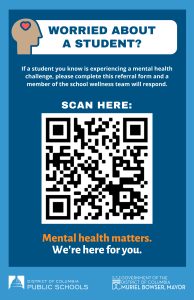As a parent, one of your top priorities is to ensure that your child receives the best possible education. This is especially important if your child has a disability that requires special education services. Thankfully, the Individuals with Disabilities Education Act (IDEA) is a federal law that guarantees all children with disabilities have access to a free appropriate public education. In this blog post, we will outline the key points of IDEA and how it can benefit your child.
What is IDEA? – IDEA is a federal law that was passed in 1975 and was last reauthorized in 2004. The purpose of IDEA is to ensure that all students with disabilities have access to a free appropriate public education in the least restrictive environment. This means that schools must provide the necessary support and services to enable students with disabilities to succeed academically and socially.
Eligibility for IDEA – To be eligible for IDEA, a child must have one or more of the 13 specified disabilities and require special education services. The 13 disabilities include things like learning disabilities, autism, and emotional disturbance. If your child is eligible for IDEA, they will have an individualized education program (IEP) that outlines their specific educational goals and the services they will receive.
IEPs and Services – IEPs are developed by a team that includes parents, teachers, school administrators, and any specialists who work with the student. The IEP outlines the student’s current level of performance, their goals, and the services they will receive to meet those goals. Services can include things like speech therapy, occupational therapy, counseling, and specialized instruction.
Rights and Protections – IDEA provides several important rights and protections for students with disabilities and their families. These include the right to a free appropriate public education, the right to be educated with non-disabled peers to the greatest extent possible, the right to have an IEP meeting at least once a year, and the right to dispute decisions made by the school district. Additionally, IDEA requires that schools obtain parental consent before conducting any evaluations or providing any services to a student.
As a parent of a child with a disability, navigating the educational system can be challenging. However, the Individuals with Disabilities Education Act (IDEA) can provide important support and protections for your child. By ensuring that your child has an individualized education program, access to necessary services, and the right to dispute decisions, IDEA can help ensure that your child has the best possible chance to succeed academically and socially. If you have any questions about IDEA or how to advocate for your child’s educational needs, don’t hesitate to reach out to your school Special Education Team.




